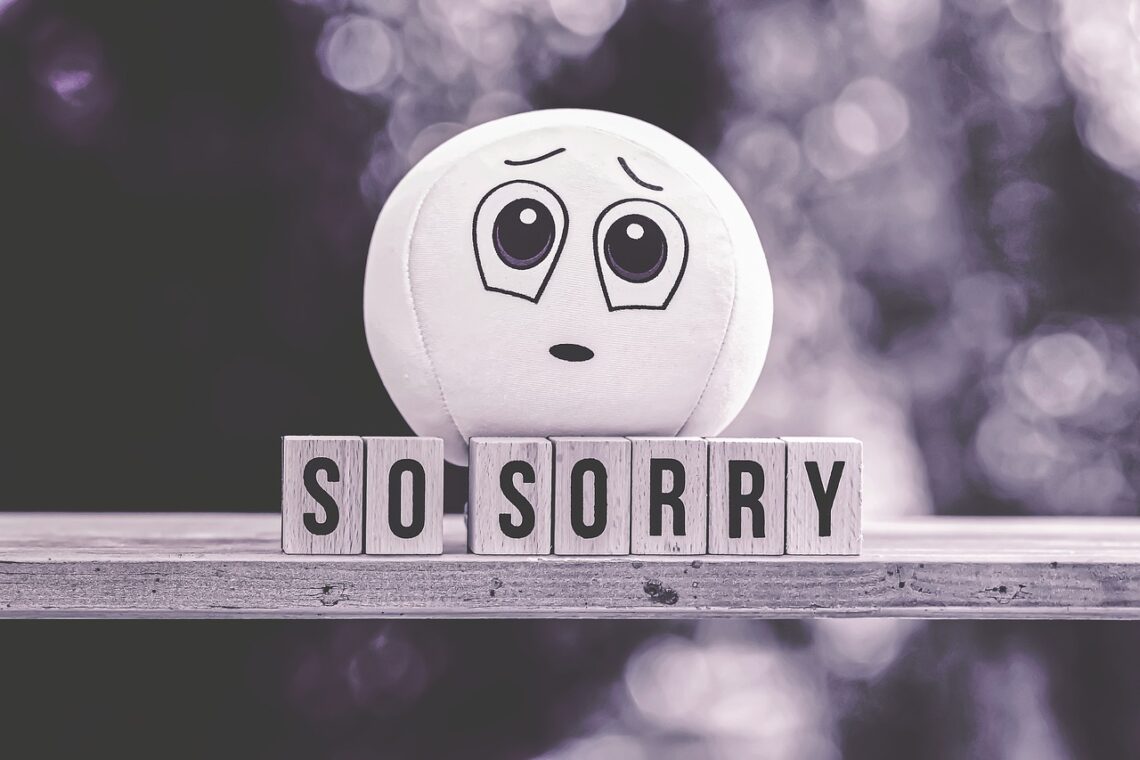Inspirations Newsletter
July 23, 2023
Trending now are apology languages. When I heard about this I wondered about the true intent of apology demands.
In what way do they serve you? Do they in any way change or dissolve the past offending act? If given upon request, do apologies solicit instant trust or forgiveness?
On the other hand, can it be argued that the need for an apology is purely ego based? Meaning that the requirement of an apology is ultimately your view that the offending party admitting their “wrong” somehow makes you feel “right.”
Does your belief in a system of “right” and “wrong” originate in your cultural upbringing that is superior to any other? Alternatively, is it synonomous with your perception of personal boundaries?
From another perspective is apology culture a tool of social engineering? After all, you are first taught to apologize at a very young age. In fact, in many cases the words “I’m sorry” are some of the first words that you are taught.
Moreover, you are also taught what behaviors should and should not be considered offensive, further defining your perception of personal boundaries.
To dive deeper, the demand for apologies begs the question of whether personal boundaries are being weaponized such that they imprison another?
If so, how do we resolve overlap? How do you determine the heirarchy of boundaries? Do the boundaries of one usurp those of another therefore requiring an apology from the lesser? In this instance, it seems the need and requirement for apologies becomes a battle of the egos.
Remembering the psychology of my younger self I recall that being asked to apologize was always met with resistance. It was something that if forced to do I did begrudgingly. It never felt good and was never something that I readily offered or wanted to do. In many ways it felt manipulative whether at my hand or anothers.
The child version of myself felt subjugated by the adult requiring that I recite the words “I’m sorry.” I resisted seeing myself as sorry.
The American Heritage® Dictionary of the English Language, 5th Edition defines sorry as:
adjective
- Feeling or expressing sorrow.
- Feeling or expressing sympathy or pity.
- Feeling or expressing regret.
Having seen the definition its no wonder that I held the disposition to the act and the phrase in the manner that I did. I didn’t want to feel any of the associated emotions.
As an adult, I have consciously adopted a practice of being intentional of both my words and actions so that I don’t live with regrets. So there is never anything to be sorry for. I’ve chosen to own what I do and how it impacts others. In doing so I typically know whether I have done something to offend another even before they have processed it. This allows me to make the necessary corrections in an action-based manner negating the need to apologize.
I’ve also resolved not to apologize for how someone else feels since that is beyond my perception or control. Feeling sorrow, pity or regret for how someone else feels in no way resolves anything. Personal feelings must be resolved internally and my words will in no way achieve that goal. More likely than not that individual was susceptible to those feelings independent of me.
Suffice it to say that apology culture isn’t a very attractive conquest from where I’m sitting. In fact, what is most disturbing about this culture of “I’m sorry” is the energy of the thing.
By now we all realize the power of the words “I AM.” There is something so powerful in the “I AM” statements that you are holding about yourself. What follows “I AM” is influential and creates your reality.
For that reason, it may be worth it to use more discretion in saying “I AM sorry.”
Sunflower Smooches!!!





